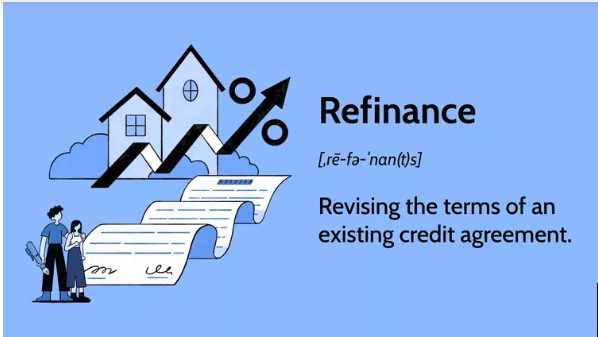What Is Mortgage Refinancing? When and Why to Consider It
Mortgage refinancing can be a smart financial move but only when done at the right time and for the right reasons. Whether you’re looking to lower your interest rate, reduce your monthly payment, or tap into your home’s equity, refinancing may help improve your overall financial health.
In this post, we’ll break down what mortgage refinancing is, how it works, and the key reasons homeowners choose to refinance in 2025.
What Is Mortgage Refinancing?
Mortgage refinancing is the process of replacing your current home loan with a new one usually with different terms. When you refinance, your old mortgage is paid off, and you start making payments on the new loan.
Your new mortgage may come with:
-
A lower interest rate
-
A shorter or longer term
-
A switch from adjustable to fixed rate (or vice versa)
-
Access to your home’s equity (cash-out refinance)
💡 Why Do People Refinance?
Here are the most common reasons homeowners consider refinancing:
1. To Get a Lower Interest Rate
If interest rates have dropped since you got your original mortgage, refinancing can reduce your rate and monthly payments — potentially saving you thousands over the life of the loan.
📌 Example: If you reduce your rate from 6.5% to 5.5% on a $300,000 loan, you could save over $180/month.
2. To Lower Monthly Payments
You might extend your loan term (e.g., from 15 to 30 years) to spread out payments and reduce your monthly financial burden. However, you may pay more interest over time.
3. To Pay Off the Loan Faster
If you’re earning more or want to reduce total interest, switching from a 30-year to a 15-year mortgage can help you build equity faster and save significantly in the long run.
4. To Convert Loan Type
Switching from an adjustable-rate mortgage (ARM) to a fixed-rate mortgage provides stability and protection from future rate increases.
5. To Tap into Home Equity (Cash-Out Refinance)
If your home has increased in value, you may qualify for a cash-out refinance, which lets you borrow against your home’s equity to pay off debts, renovate, or invest elsewhere.
6. To Eliminate PMI
If your home equity has grown beyond 20%, refinancing might help you eliminate private mortgage insurance (PMI), reducing your monthly costs.
⏱️ When to Consider Refinancing
✅ You Should Consider Refinancing If:
-
Interest rates are at least 1% lower than your current rate.
-
You plan to stay in the home long enough to recoup refinancing costs.
-
Your credit score has improved, qualifying you for better loan terms.
-
You have significant home equity to use or remove PMI.
-
You want to pay off your loan faster or reduce your total interest payments.
🚫 You May Want to Wait If:
-
You plan to move soon and won’t benefit long-term.
-
You have high closing costs that outweigh the benefits.
-
Your credit score or income situation has declined.
-
Prepayment penalties apply to your existing mortgage.
💰 What Are the Costs of Refinancing?
Refinancing isn’t free. Expect to pay 2% to 6% of the loan amount in closing costs, including:
-
Loan origination fees
-
Appraisal fee
-
Title search and insurance
-
Credit check
-
Government and recording fees
Before refinancing, calculate your break-even point — the time it takes for savings to exceed your refinancing costs.
📌 Example: If refinancing saves you $150/month and costs $4,500, your break-even point is 30 months.
📋 How to Prepare for a Refinance
-
Check Your Credit Score – Higher scores qualify for better rates.
-
Know Your Home’s Value – Lenders often require an appraisal.
-
Compare Lenders – Shop around for the best interest rates and fees.
-
Gather Documents – Tax returns, pay stubs, bank statements, etc.
-
Calculate the Numbers – Use a refinance calculator to estimate savings.
Final Thoughts on What Is Mortgage Refinancing? When and Why to Consider It
Mortgage refinancing can be a powerful tool to reduce costs, improve loan terms, and leverage your home equity but it’s not always the right move for everyone.
Before jumping in, take time to:
-
Analyze your financial goals
-
Calculate the true costs and savings
-
Compare offers from multiple lenders
Refinancing is not just about chasing lower rates — it’s about making a smart move for your long-term financial health.


